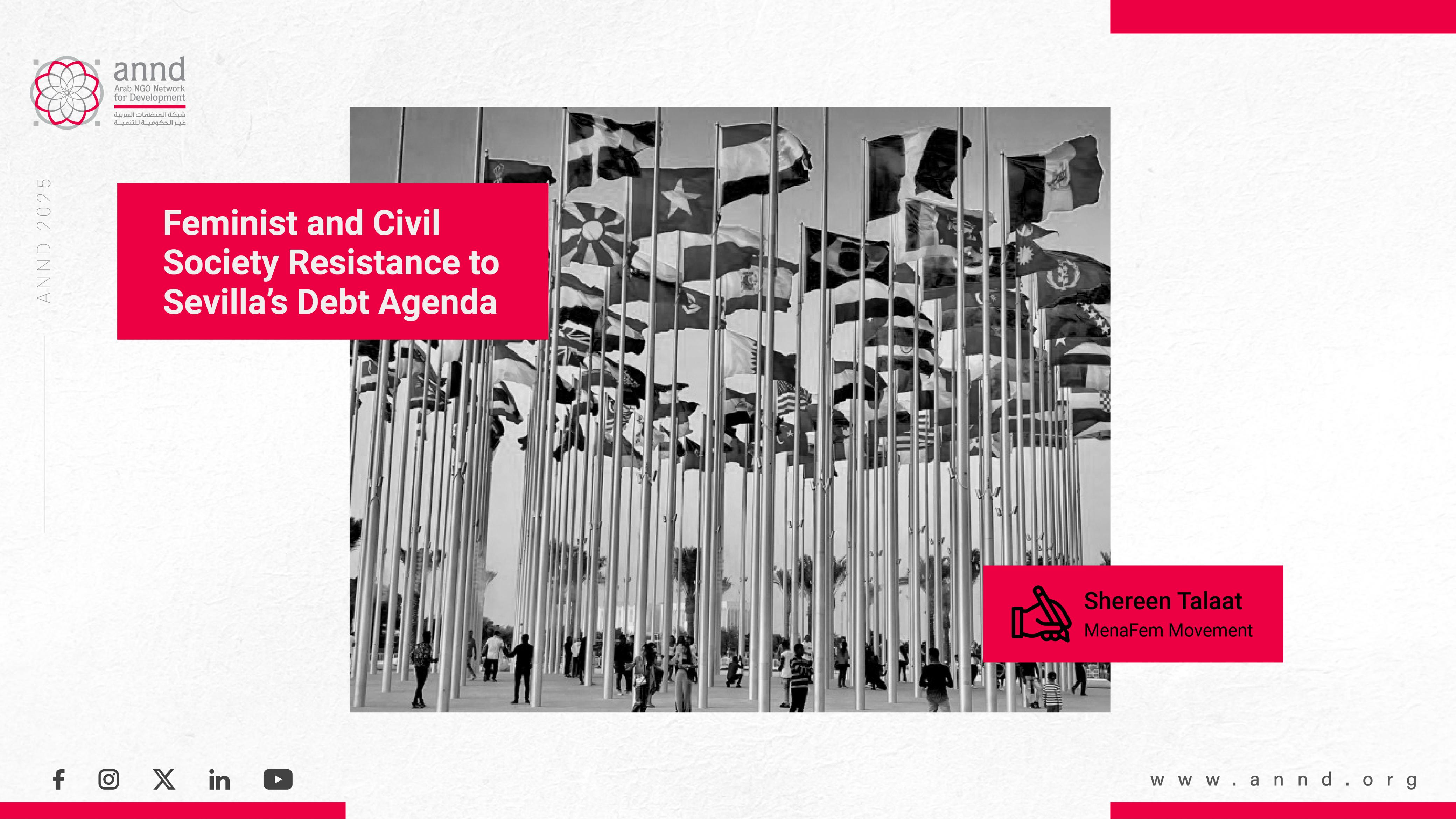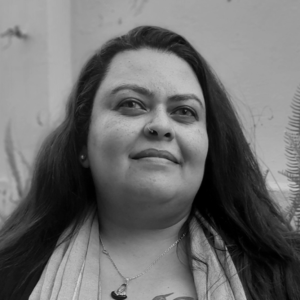Feminist and Civil Society Resistance to Sevilla’s Debt Agenda - Shereen Talaat
Debt is a Feminist Issue
The debt crisis in the Global South is not theoretical. It is lived daily by millions. Women in the MENA region carry the burden. They absorb public sector cuts, provide unpaid care, and lose access to healthcare, education, and income so their governments can repay loans to rich countries and international institutions.
Public debt has reached dangerous levels. In Egypt, over 50% of government revenues go to debt service (Eurodad, 2024). In Lebanon and Tunisia, debt distress continues with no structural relief. IMF-backed austerity programs across the region have led to wage freezes, subsidy cuts, and public service deterioration, affecting the most vulnerable, especially women and informal workers.
Debt is not neutral. It is a tool of power, shaped by colonial legacies and global economic hierarchies. At the Fourth International Conference on Financing for Development (FfD4) in Sevilla, MENAFEM came with a clear position: no feminist future is possible under this debt regime.
MENAFEM’s Position in Sevilla
We opposed efforts to recycle failed tools as solutions. The World Bank and the Spanish government launched a “Debt Swap Hub”, presented as a path to unlock development and climate finance. We rejected it.
Why we objected:
- Debt swaps don’t reduce debt. They only redirect repayments and maintain the debt burden.
- They entrench creditor control. Swaps come with conditions, undermining national sovereignty.
- They exclude local movements. Communities and feminist groups are left out of decision-making.
- They distract from justice. Real solutions require full, unconditional debt cancellation.
A Feminist Lens on Debt Justice
MENAFEM’s perspective is grounded in lived experience across MENA. We demand:
- Recognition of unpaid care work as central to economic planning.
- Expansion of public fiscal space for healthcare, education, and climate resilience.
- Support for feminist, community-led climate solutions, not market-driven models.
- Real participation of grassroots movements in economic governance.
We are not asking for technical fixes or conditional aid. We are demanding justice.
Civil Society’s United Voice
In Sevilla, MENAFEM stood with regional and global networks under the Civil Society FfD Mechanism, including Eurodad, AFRODAD, and Climate Action Network International. Together, we rejected the current debt approach and called for structural change.
Key shared demands:
- A UN-led multilateral legal framework for sovereign debt resolution.
- Full debt cancellation to free up fiscal space for climate and social investment.
- An end to voluntary, creditor-led mechanisms that maintain asymmetry.
- Centering equity, accountability, and historical responsibility in financial governance.
These movements made clear that real change will not come from those who benefit from the status quo.
Sevilla Outcome: No Structural Progress
- The FfD4 outcome document offered no meaningful breakthroughs.
- No commitment to debt cancellation.
- Continued reliance on vague language around debt sustainability.
- No recognition of the gendered impacts of austerity.
- Push for “innovative instruments” like debt swaps, without safeguards.
The institutions responsible for the crisis are still in control of the response. Without binding rules, debtor-led mechanisms, and UN leadership, the debt crisis will persist.
What We’re Building: From Sevilla to Rabat
In May 2025, MENAFEM, WEDO, and partners convened the Global Feminist Economic Justice Gathering in Rabat, bringing together movements from across the Global South MENA and the global movement. From this convening, we launched a shared Declaration and Roadmap grounded in sovereignty, justice, and systemic transformation.
Key outcomes of the Rabat Declaration:
- A call for the unconditional cancellation of Global South debts, recognizing debt as a colonial tool.
- Demand for a progressive, gender-transformative tax system that redistributes wealth and funds public services.
- Rejection of sustained economic growth as a principle, proposing alternative economic models focused on wellbeing and justice.
- Demand for unconditional climate finance through new, grant-based funding for feminist, community-led solutions.
- Call for the democratization of global economic governance, ending Western dominance over institutions like the IMF and World Bank.
- Support for South-South cooperation, outside the frameworks of donor-led model.
We also placed Palestine, Yemen, Sudan, and other war-affected regions at the center of our demands, calling for an end to militarism, occupation, and neo-colonial control. These issues are inseparable from the debt and development agenda.
Beyond Sevilla: Organizing for Power
MENAFEM is building a feminist, region-wide political response. We are:
- Mobilizing grassroots feminist movements.
- Conducting regional debt and austerity analysis.
- Building alliances with climate justice, labor, and economic justice networks.
- Elevating knowledge on women in macroeconomics and fiscal policy advocacy.
We are not waiting for change. We are building it from below.
Final Word
Debt is not just a financial issue. It is a system of control. Sevilla offered more of the same—tools that preserve creditor power and ignore the realities of the Global South.
We are organizing for something different: feminist economic justice rooted in sovereignty, dignity, and repair.
This article is part of ANND’s newsletter on FFD meetings in Sevilla.



